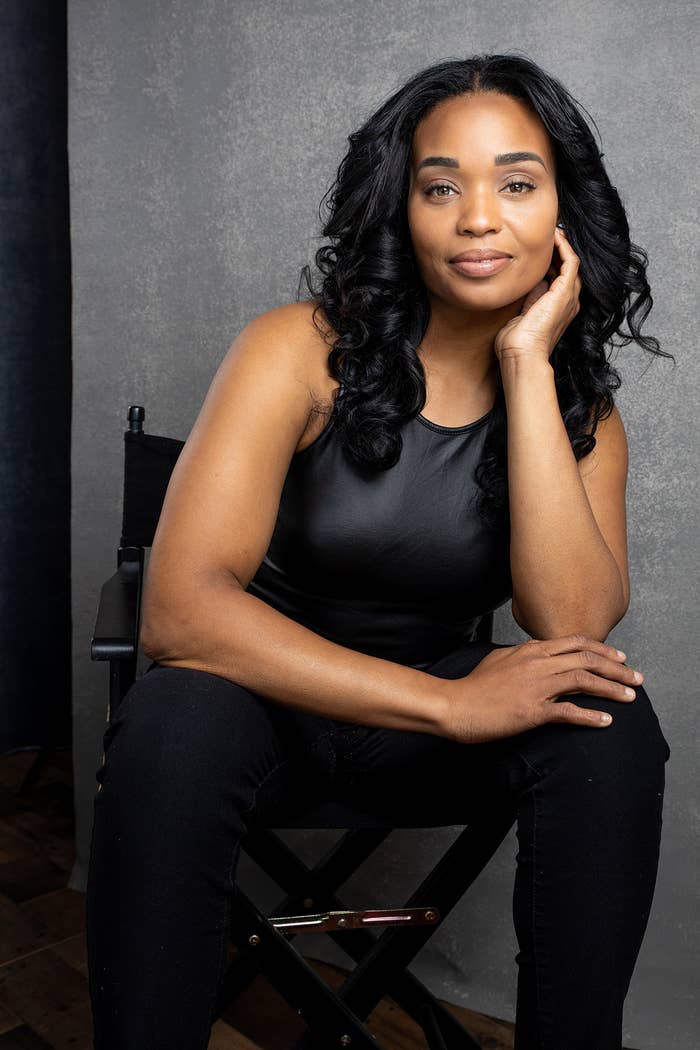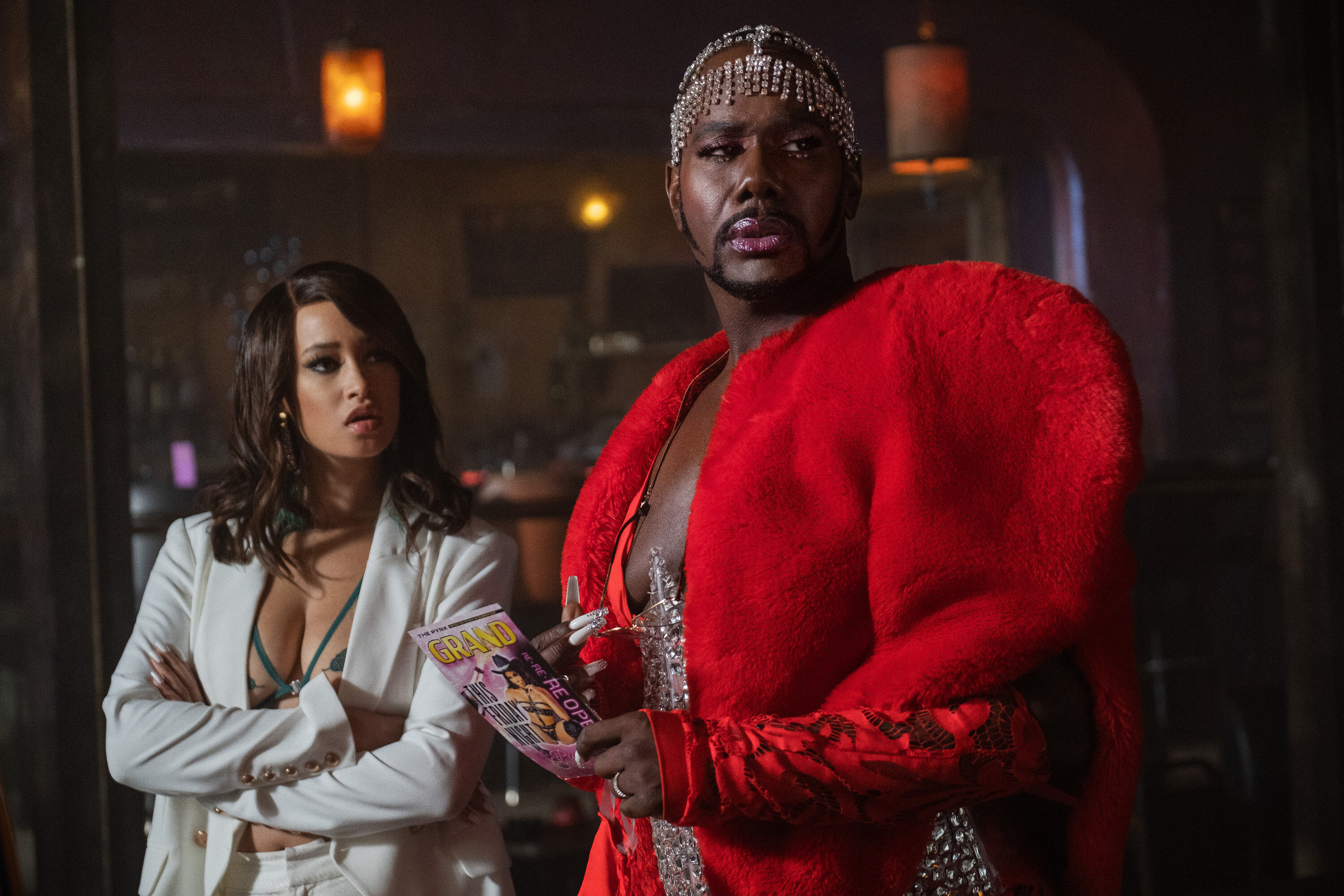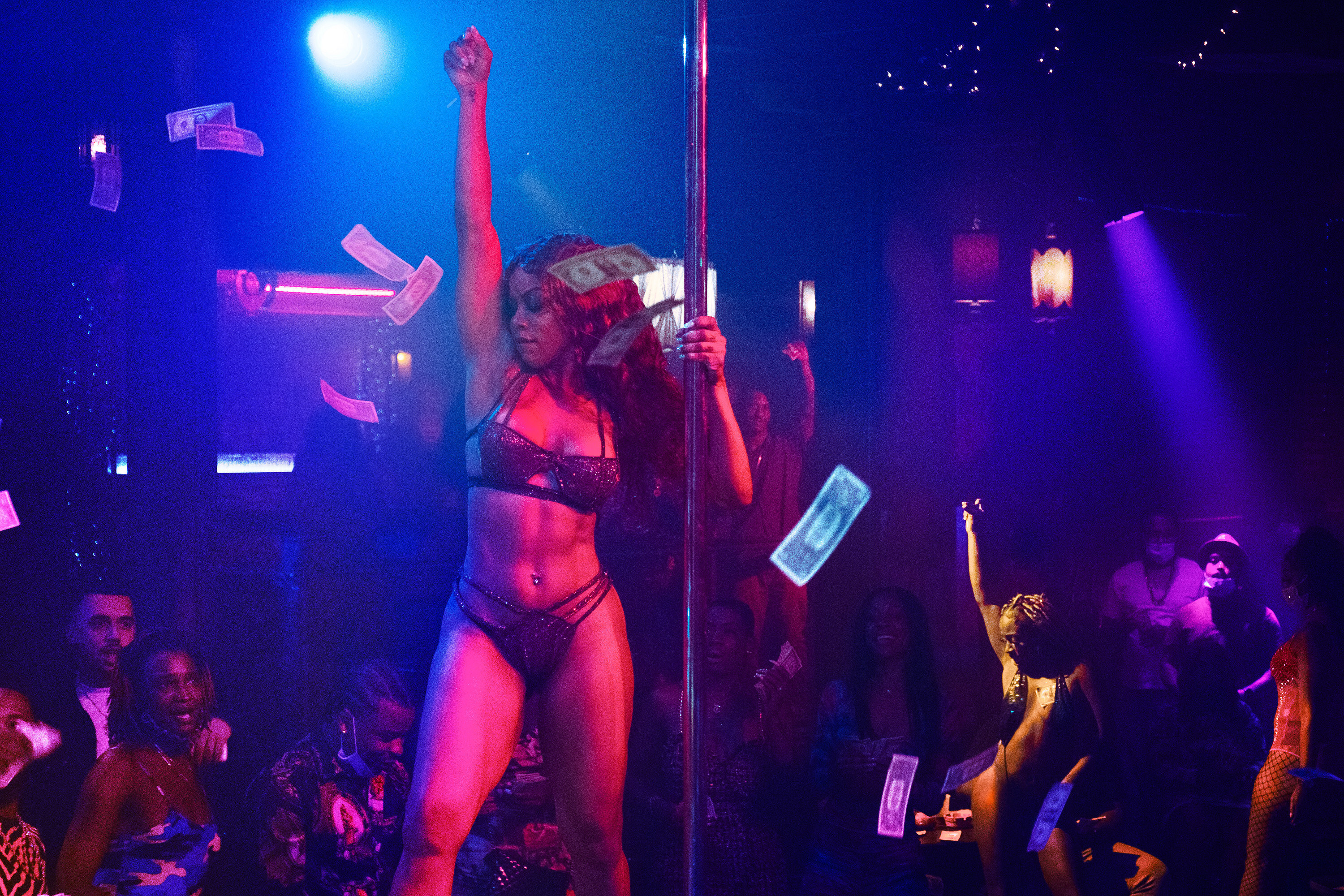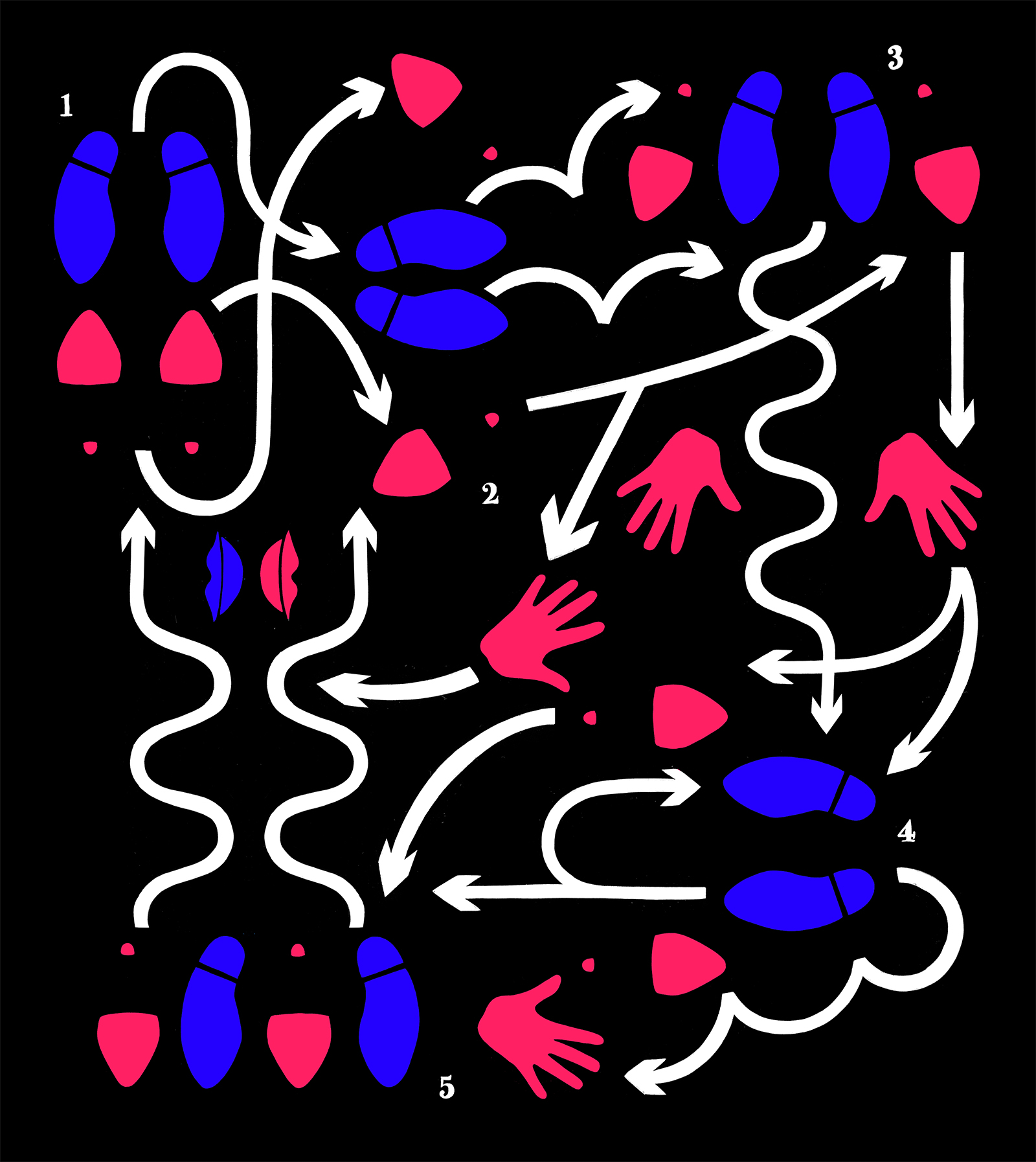When 34-year-old Zuri Pryor-Graves got a job as a background actor on the first season of the Starz drama P-Valley, she noticed that there wasn’t a designated intimacy coordinator on set. The show, about the lives of dancers in a strip club in the fictional Southern town of Chucalissa, Mississippi, features a lot of nudity and sex scenes set in a strip club called the Pynk, and Pryor-Graves said she witnessed “harassment” and “inappropriate behavior” from male background actors in between takes. (Representatives for Starz declined to comment on allegations of harassment on set.)
Before Pryor-Graves became an actor, she had been a licensed clinical sex therapist. “I was really picking up on a lot of the tensions and the discomforts from some of the female performers and I started to speak up about it. I was like, ‘Whose responsibility is it to protect these people? Who has their backs when nobody’s watching?’” Pryor-Graves told BuzzFeed News. “I was like, ‘Is there such a thing as an on-set therapist?’ Because if this is the way things are ... then these people need help after the fact, because this is kind of traumatic.”

P-Valley, created by Katori Hall, premiered on Starz in July 2020. The show is based on Hall’s 2015 play Pussy Valley, which was also about people who worked in a Southern strip club. Starring actors Nicco Annan as the show’s fierce nonbinary club owner Uncle Clifford, Brandee Evans as customers’ favorite dancer Mercedes, and Elarica Johnson as new dancer Autumn Night, P-Valley depicts strippers as more than props or objects for the male gaze. It has been lauded for the authoritative and nuanced way in which it depicts the stories of these complex characters, some of whom endure relationship abuse, sexual harassment, and poverty, while still showing up to work at the Pynk, not letting their hardships define them.
Pryor-Graves said in the midst of filming Season 1, P-Valley hired Samantha McDonald, an intimacy coordinator who’s also worked on The Outsider, Ozark, and The Girl From Plainville. Pryor-Graves was intrigued as she watched McDonald manage the scenes involving nudity and sex, from ensuring the actors’ comfort levels at every step to enforcing strict regulations to maintain a safe space. She met with McDonald during lunch breaks, asking questions about the job and seeking advice about how to become an intimacy coordinator herself. Pryor-Graves did some training, including workshops about mental health and first aid, to enhance her clinical knowledge; she also sought out mentors in the field. With her background as a sex therapist and experience in production, Pryor-Graves was confident that she was the perfect candidate for P-Valley, and others agreed; she landed the gig for Season 2.
In the last few years, viewers and consumers of pop culture have become increasingly aware of intimacy coordinators and their roles on TV and movie sets. In light of the #MeToo movement, recognition of the importance of how actors and crew members navigate nudity and sex on set has grown. Pryor-Graves compares the job to that of a stunt coordinator, helping everyone to prepare for scenes with as much support as possible.
“To be able to say that for so long we were doing all of these potentially hazardous and dangerous things without that kind of coordination and support for these performers is just mind-blowing to me,” Pryor-Graves said. “We’re talking about our bodies.”
The role of an intimacy coordinator starts before they step on set. Most of the work goes into preparation: Pryor-Graves receives an episode’s script ahead of shooting and gauges what the actors will be doing. “Our main goal is to protect people, keep people safe, and make sure that our performers feel like collaborators in their own intimacy work, so in order to do that the conversations start as far in advance as we can,” she said.
To ascertain whether “everybody has consented to the story that’s being told,” Pryor-Graves has conversations with individual actors and checks their comfort levels with what is being asked of them in terms of nudity, physical contact, and any other sensitive matters. Hall and the other P-Valley writers are “very specific” in their asks and direction, said Pryor-Graves, which makes her job easier because it’s clear what will happen in every scene.
“There’s very little left to the imagination of the actor or of me as the intimacy coordinator,” she said. “Then we get into [asking], How do we tell the story within the actor's boundaries while also upholding production and creativity?”
The next step is putting on rehearsals. Pryor-Graves sits down with the director, producer, and actors to discuss their boundaries, “speak with each other about what they are and are not comfortable with,” and explicitly say where they do and don’t want to be touched. Then they go through the beats of a scene and choreograph it, “like a dance,” so that everyone can anticipate what will happen. They don't think about it like a sex scene, she said. Pryor-Graves said she keeps rehearsal spaces “really small and intimate” to ensure everyone is comfortable.
“An actor knows what their boundaries are, for the most part,” Pryor-Graves said. “My job is to hope that they aren’t finding them through the trauma of doing something or saying [something] that they're not OK with when they get in the space.”

P-Valley isn’t a one-dimensional show, especially when it comes to onscreen representation. Not only does the show depict the complex lives of women of color, but it also features characters who identify as LGBTQ. J. Alphonse Nicholson, who plays rapper Lil Murda, is married to a woman in real life, but on the show he plays a gay man who is not out but had a relationship with another man. When Pryor-Graves works on intimate same-sex scenes involving straight actors, she said it's important to “hold space for the emotions that might be brought up when you have that experience.”
“If you’re a person who’s had sex before but have never had it in this way, even though we’re not technically having sex, those thoughts have a place,” she said. “Keeping people comfortable is important. The actors are happy to be able to be those voices for those stories, but also want to be authentic to themselves, the story, and the people they’re telling stories for.”
When it comes to sensitive scenes, Pryor-Graves is concerned about more than just the physical aspects of safety. Whenever sexual misconduct or assault, rape, murder, or any other kind of violence occurs in an episode, she writes a disclosure memo for crew members and has private conversations with the actors.
“I’ve been clinically trained to be able to understand the human experience in a different way and I think that is vital for a show like this,” Pryor-Graves said. “Those scenes are so huge for the people in them and for everybody on set having to watch this 10, 15 times, over and over — you never know who’s in the room that you're needing to hold space for.”
Every day on set, she warns the background actors that there are consequences for acting inappropriately on set. “I would give the same speech every day and say, ‘Remember, you’re at work. If you see something, say something. If you do anything inappropriate, we will never have you back and you will be escorted off the premises immediately and you will not be paid,’” Pryor-Graves said.

For scenes involving any nudity or intimacy, closed-set protocols are activated. Pryor-Graves said she works to reduce the number of people on set: for example, if only one sound person will suffice instead of two, or one camera operator instead of four. Actors stay in their robes “until the very last second” so that they’re covered for as long as possible before filming a nude scene. Actors use barriers between their genitals during intimate scenes so that they’re not actually touching.
P-Valley filmed in Atlanta from May 2020 through February 2021. Pryor-Graves said she also appreciated the frequency with which actors and crew members had to be tested for COVID. According to Pryor-Graves, Hall encouraged strict procedures to keep everyone healthy and “protect people’s peace of mind.” In addition to PCR testing, she said actors would have to take rapid tests on the day of filming “if there was any kissing or intimacy of any kind.”
“I can only do so much to protect [people] in terms of health, so there’s something about having people tested regularly that makes me feel more enthusiastic,” Pryor-Graves said. “I think it brings health and awareness to the forefront of people’s minds in a way that they should be thinking about it, in terms of intimacy in the pandemic.”
The job of an intimacy coordinator is more important than ever, according to Pryor-Graves, who said she finds her role rewarding. Since booking her first gig as an intimacy coordinator on P-Valley, Pryor-Graves said she’s gone on to work on a number of shows, including HBO’s The Righteous Gemstones, AMC’s Damascus, and Apple TV’s upcoming series Zoltar. Pryor-Graves thinks intimacy coordinators are especially important on a show like P-Valley since “nearly every scene includes some form of nudity,” which, she said, “requires a little bit more from the performers than typical acting.” The show reflects “real-life stories from real-life people,” Pryor-Graves said, so she feels an obligation to tell those stories onscreen in a responsible way, starting with actors feeling “comfortable and confident.”
“We want to make a good show,” Pryor-Graves said. “These performers knew that somebody was there to have their back so they could be prepared every single day to walk through the door and do their best work.” ●
We want your help! If you have more information or a tip regarding workplace culture in Hollywood, contact krystie.yandoli@buzzfeed.com, or reach us securely at tips.buzzfeed.com.



